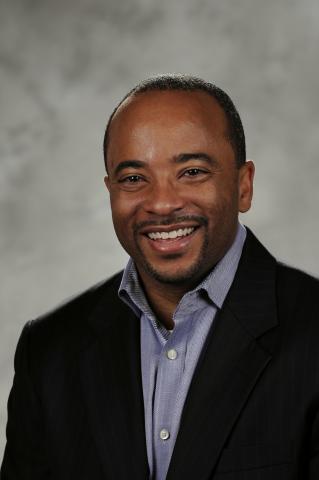ECE Professor Raheem Beyah has been named a Distinguished Scientist in the Association for Computing Machinery (ACM) “for contributions in networking and security.”
Raheem Beyah has been named a Distinguished Scientist in the Association for Computing Machinery (ACM) “for contributions in networking and security.”
On November 30, ACM named Beyah among its group of 45 Distinguished Members for their individual contributions to the field of computing, which have advanced the science, engineering, and education of computing, and highlight the growing role of computing in the major technological advances shaping society today.
A member of the Georgia Tech School of Electrical and Computer Engineering (ECE) faculty since 2011, Beyah holds the Motorola Foundation Professorship and is the School’s associate chair for Strategic Initiatives and Innovation. He leads the Communications Assurance and Performance (CAP) Group and is a member of the Communications Systems Center (CSC) and the Institute for Information Security and Privacy (IISP). Prior to returning to Georgia Tech, where he earned his M.S. and Ph.D. degrees in 1999 and 2003 respectively, Beyah was an assistant professor in the Department of Computer Science at Georgia State University, a research faculty member with the CSC, and a consultant with Andersen Consulting’s (now Accenture) Network Solutions Group.
Beyah’s research interests include network security, network traffic characterization and performance, privacy, and cyber-physical systems security with a focus on critical infrastructure. His group has discovered critical flaws in many power grid devices across the globe, and this work has resulted in the development of security patches for these devices. Beyah’s work has been highlighted in many news outlets, including NSF Science 360 Radio, NetworkWorld, and Forbes.
Initiated in 2006, the ACM Distinguished Member program recognizes those members with at least 15 years of professional experience who have made significant accomplishments or achieved a significant impact on the computing field. The program consists of three categories–Distinguished Scientists, Distinguished Engineers, and Distinguished Educators.
